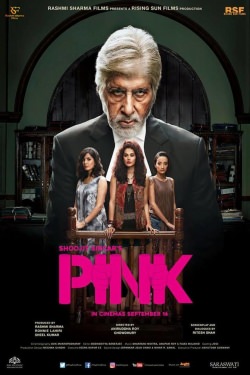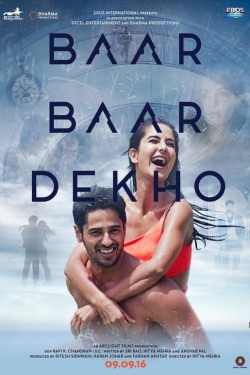Top Rated Films
Nandini Ramnath's Film Reviews
-
Rebellion and revolt don’t often fly off the franchise shelf, but here is Katniss Everdeen in part deux of the post-apocalyptic fantasy action drama The Hunger Games, having an Arab Spring moment and landing an arrow or two in the name of liberty.
-
Last Vegas is the outcome of Hollywood’s admirable ability to create roles and movies for its older talent and address the needs of the wrinkled but moneyed section of the audience. The adventure of four childhood friends, who reunite when one of them finally decides to end his bachelor days, is filled with references to pill organizers, hip surgeries, and the advent of death.
-
Rajjo claims to be a sensitive examination of the social discrimination faced by prostitutes, but writer and director Vishwas Patil’s feminism can be measured by the depth of lead performer Kangana Ranaut’s cleavage.
-
Satya 2 does have academic value, as a study of a director’s systematic attempts to demolish his legacy and bury one of his most enduring creations—the Man With No Background who represented the dreams and nightmares of Mumbai in the 1990s.
-
Captain Phillips begins in a routine way and concludes in a Best Actor Oscar bid, but the opening and climax bookend an often heart-stopping battle of wills between a ship cargo crew and four daredevil pirates.
-
The only bold move in an otherwise smug, by-the-numbers movie is the absence of a romantic interest for Boss. Akshay Kumar’s XXL-sized comic timing serves him well in some of the action comedy sequences, but fitness levels can never replace genuine acting skills. The rest of the cast picks up their paycheques, and only Ronit Roy seems to be making an effort to be serious amidst the clowning.
-
German filmmaker Oliver Hirschbiegel’s biopic Diana takes the basic facts of the British royal’s post-divorce years, puts them through the dry-cleaner and then whips them on the washing stone to make sure that no blemishes or stains survive.
-
When it’s not trying to jolt audiences out of the stupor they are likely to slide into, Besharam turns over every cliché from the Big Black Book of Hindi Movie Plots section that lists “Robin Hood-inspired Thief Takes Good Turn After Heart is Stolen.”
-
This is a movie that aspires to be about the mini-empires that exist within—and often work against—the Indian republic, but it scuttles its own ambitions midway through. It becomes yet another movie about twins separated by circumstance and brought together by Hindi cinema.
-
Shaadi Ke Side Effects continues with the male POV, has the same exasperated voiceover and a similar sense of shock at the responsibilities foisted by marriage on the male gender. The second film has gained gloss and glamourous leads but at the expense of variety of tonal consistency. Early-reel wackiness is jettisoned for heavy-handed sermonising, Sid’s suffering enters masochistic territory, Trisha begins to look like less as a misunderstood mother and more as an uncaring hausfrau, while minor characters (Rati Agnihotri, Ila Arun) fade out after being introduced.
























